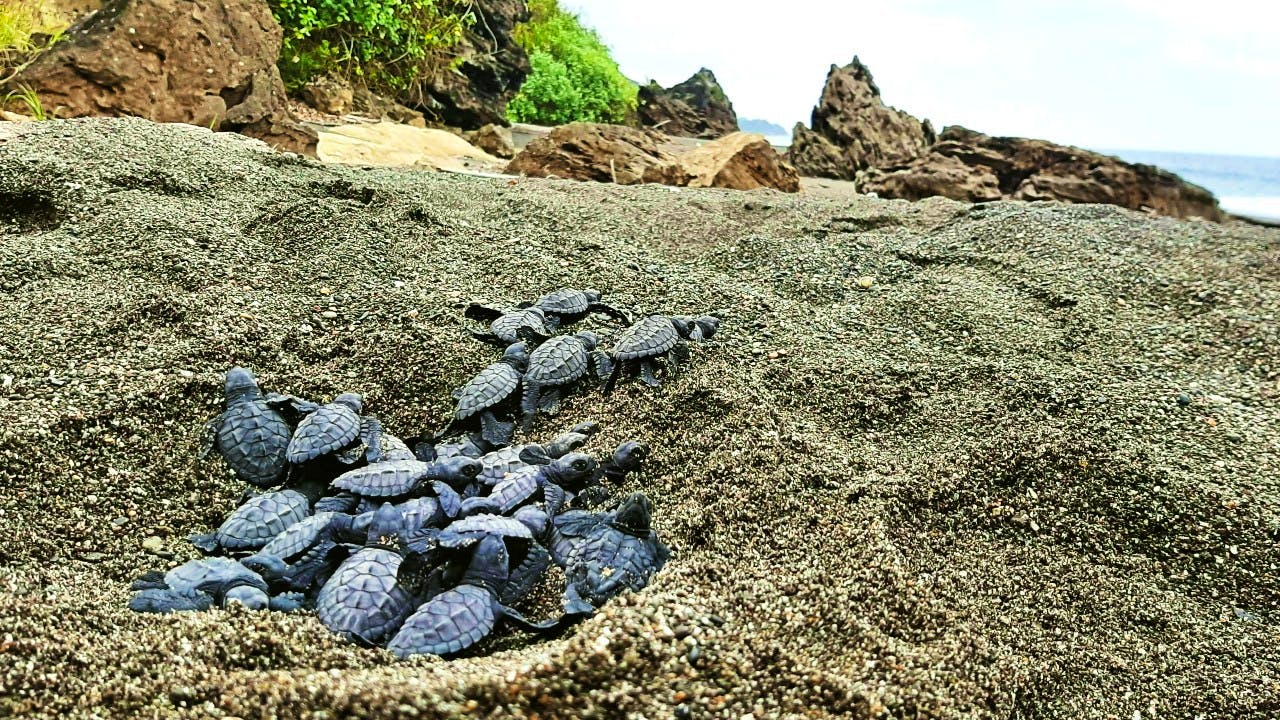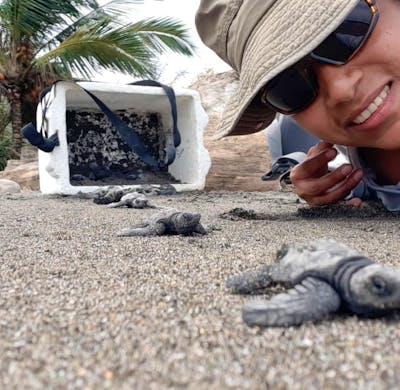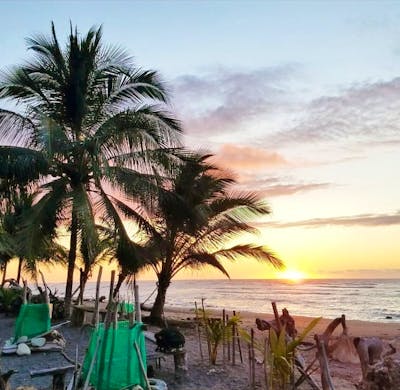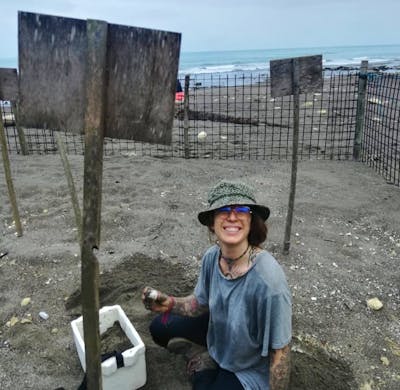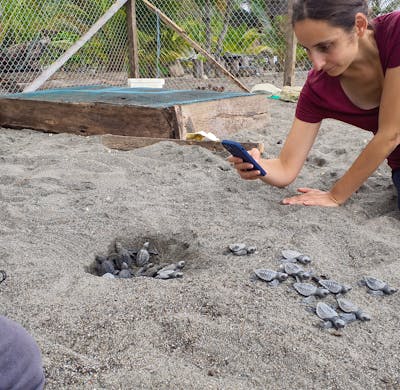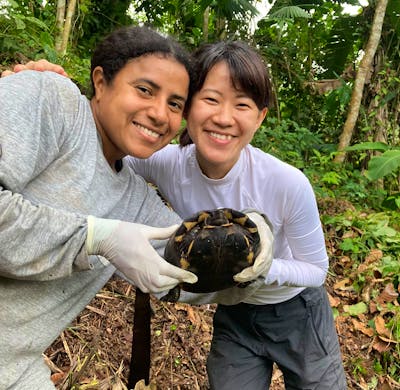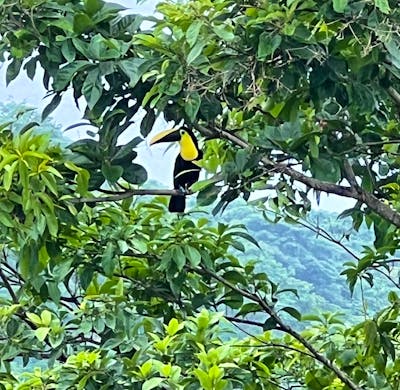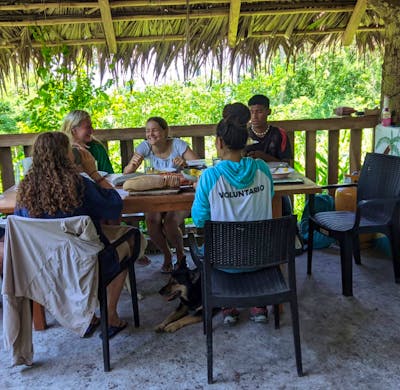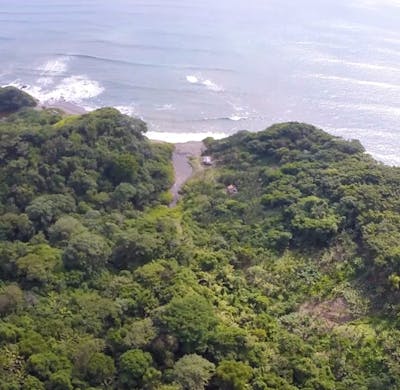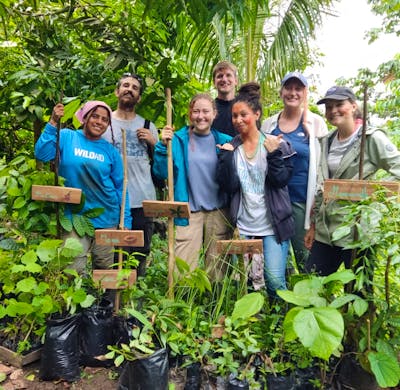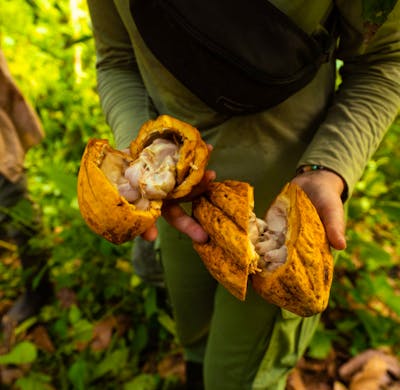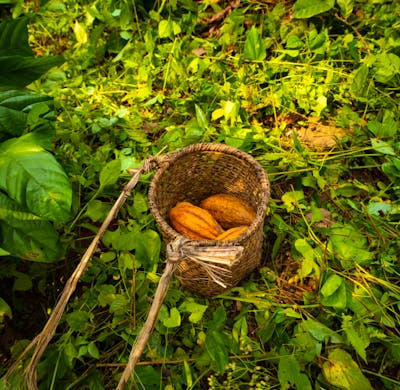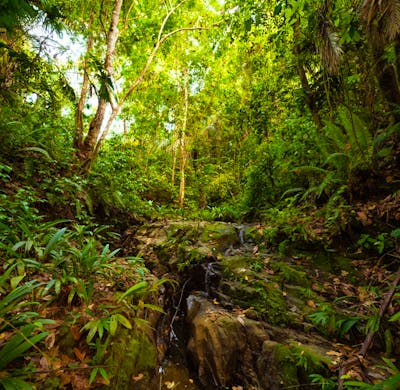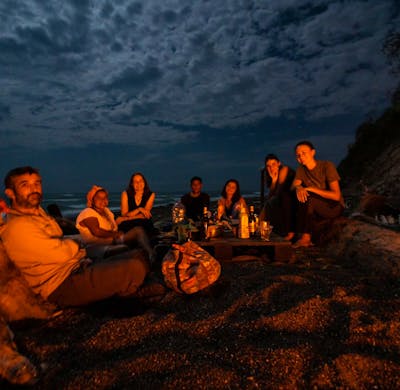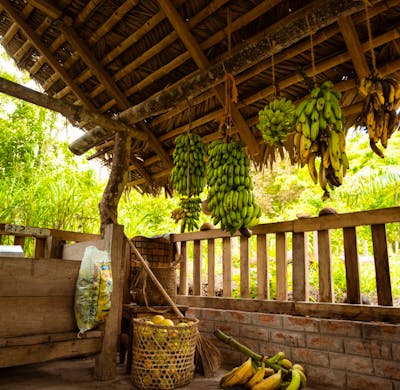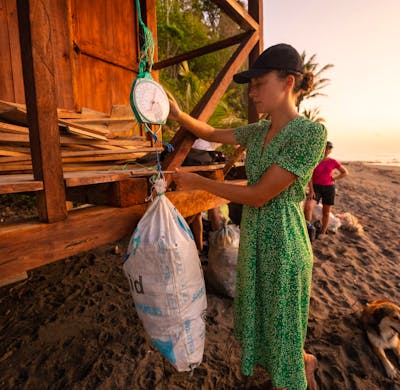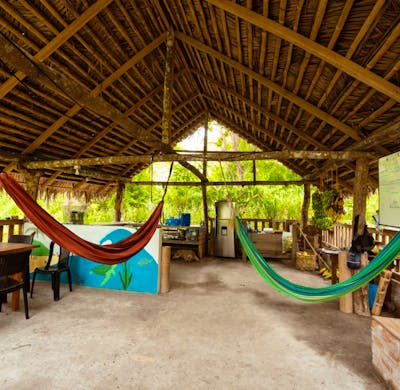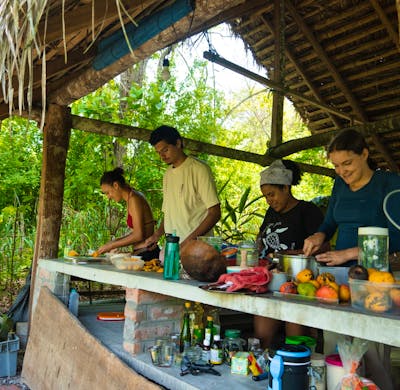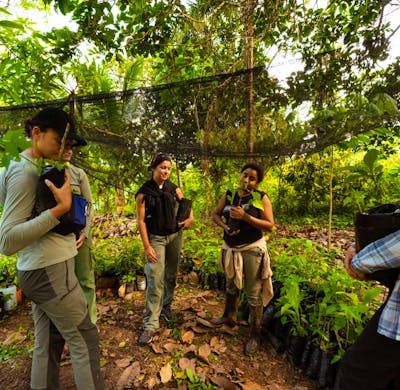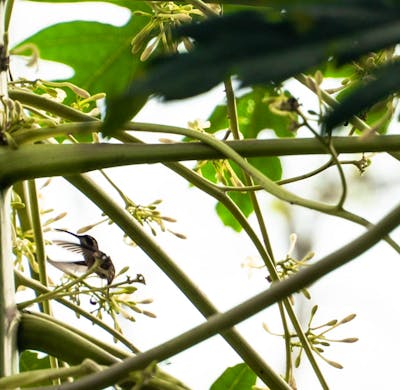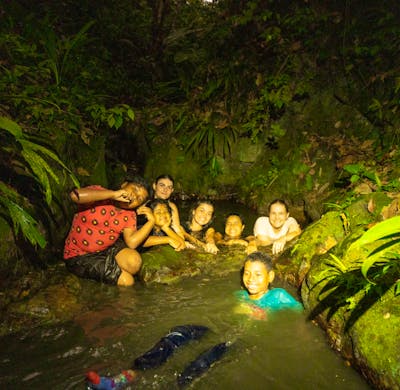We are a local non-profit organization working for the conservation of last Ecuadorian coastal Chocó
rainforests as for the threatened species present in the Galera-San Francisco Marine Reserve, with
special focus on sea turtles. Our organization is made up of a multicultural and multidisciplinary group of
people who love nature, so we are taking specific actions to be part of the process of protecting and
regenerating these ecosystems. All organization members have years of experience working in tropical
rainforest and/or marine conservation projects in this area.
Volunteers will take part in both projects.
SEA TURTLES CONSERVATION PROJECT
This project aims to improve sea turtles conservation actions in Galera San Francisco Marine Reserve (RMGSF), presently under non-trivial threats. Since 2014, two local communities have been receiving environmental education and taking actions at the nesting beaches, involving mostly local youth and volunteers, both nationals and internationals.
For turtle conservation work, schedule and dynamics vary greatly
depending on the month of the year. From mid June, nesting season
begins, reaching its peak from August to February. During these months,
nesting beach monitoring will be carried out between 7.30 am and 11 am,
and may last until the afternoon depending on the turtle activity found, nests
to protect or relocate. The days where less turtle activity is
found we will clean the beach from plastics and do some work on
regenerative farms, veggie garden and/or plant nursery, where we produce seedlings of endangered native species for reforestation purposes. After lunch,
activities will be organized according to available energies after
morning work. In total, 5-6h of work per day is expected from
volunteers, ending between 12pm and 3pm depending on starting time.
Volunteer Program Activities:
- Carry out walks along the Marine Reserve beaches for the detection, geo-location (GPS) and protection of sea turtle nests. Relocation of nests that are in a place with no options of success.
- Monitor sea turtle nests until the hatchlings reach the ocean.
- Carry out beach plastic cleanings to facilitate nesting of sea turtles (with special aim for ghost nets). Collection, classification, reuse and/or recycling of waste found on the nesting beaches.
- Assistance in theoretical/practical environmental education workshops for local youth.
This project is led by local marine biologist Andrea Sosa, who has been working for the Ecuadorian Ministry of
Environment since 2014. It aims to improve sea turtles conservation actions in Galera San Francisco Marine
Reserve (RMGSF), presently under non-trivial threats. Since 2014, two local communities have been
receiving environmental education and taking actions at reserve nesting beaches, involving mostly
schoolchildren and volunteers, both nationals and internationals. First improvements of community guided
conservation projects have been achieved.
RAINFOREST CONSERVATION & TROPICAL PERMACULTURE PROJECT
Our organization is working for the conservation of the last remnants of coastal tropical rainforests in Ecuador, which are present in the Galera - San Francisco peninsula. Our aim is to regenerate and reforest degraded ecosystems in order to give more habitat options for endemic wildlife, which is facing serious threats due to deforestation. Volunteers will support this iniciative by doing the following activities:
Volunteers/interns participating in this program will be mostly working on monitoring wildlife (camera traps) and
regeneration of degraded ecosystems. An important amount of fieldwork will take place at agroforestry
systems or in the forest surrounding them (last remnants of this ecosystem in Ecuador). Biodiversity
regeneration through reforestation in biological corridors will be one of the main priorities in this program. Lots
of work related to plants will be done: nursery work, seedlings production to bring in degraded areas, tropical
gardening, pruning, etc. You will learn proper tecniques for soil regeneration and improvement of fertility in
cacao and tropical fruits farms. This part is crucial to mitigate the use of toxic chemicals to produce bigger
crops which contaminate watersheds. Educational workshops for local youth will be organized in the
communities to arise environmental consciousnesses, so it is expected that volunteers/interns will also help in
this kind of tasks.
Volunteer Program Activities:
- Improve the record of wildlife present in the forest/regenerative farms of the area through observation and using wildcamera traps. (You will need to download apps like e-Bird, iNaturalist, etc).
- Support in maintenance of regenerative cacao farms (agroforestry systems).
- Planting, pruning, harvesting and processing mainly cacao, as well as other fruits (banana, papaya, passion fruit, ginger, tumeric, cardamom...).
- Maintenance of living terraces for soil regeneration, fertility improvement and watershed restoration.
- Collecion of seeds to germinate in plant nursery, as well as wild seedlings.
- Reforestation with native species to contribute to the conservation of biodiversity, as weel as the regeneratioin of water sources.
GENERAL ACTIVITES
- Give support in workshops or organize activities for local youth on topics that volunteers like (sports, English classes, arts, computing, etc).
- Give support in the eco-tourism activities.
- Give support for the administrative part of the organization (web site, social networks, etc).
Weekends are free time but volunteers, if interested, have the option get involved in the educational project that we are running on local communities. In this case, one day of the week will be off. (5 working days per week in total).
Highlights of this program:
- Contribute to improve the record of wildlife populations present in the surrounding forests and agroforestry
systems of the area using camera traps, through observation (binoculars), jungle walks, night monitoring,
etc. (You will need to download apps like e-Bird, iNaturalist. Recommended getting a extra-rugged case for
smartphone).
- Observe Ecuadorian Chocó wildlife species in their natural habitats, including sea turtles on the marine
reserve beaches, as well as hundred of species of tropical birds, amphibians and much more!
- Gain experience in how conservation projects
funded by international environmental
organizations are set up and managed.
- Acquire necessary skills for ecological design
and give support for the maintenance of
regenerative farms / agroforestry systems.
- Reforestation with native endangered species.
- Planting, pruning, harvesting and processing tropical fruits (cacao, banana, papaya, passion fruit, ginger,
tumeric, cardamom and much more).
- Maintenance of living terraces for soil regeneration, fertility improvement and watershed restoration.
- Collection of seeds to germinate in plant nursery, as well as wild seedlings.
- Living a sustainable community life guided by the principles and ethics of Permaculture.
WHAT TO BRING
- Clothes: Quick drying clothing. Thin long sleeve shirts and thin long pants, both for working (old
ones) and for resting time(to protect from mosquitoes, even better if it is bright colors). Also short
clothes for sunny days.
- Flashlight, preferibly a rechargeable head lamp with a red light to be used at night during sea
- turtle nesting season.
- Insect repellent (better if it is an organic on not too toxic option).
- A good quality poncho or raincoat.
- Towel
- Sandals for the beach.
- Hiking shoes (with some water protection would be perfect)
- Hat
- Sun Block
- Swimsuit
- Personal Snorkel and Mask
- Fleece jacket
- Recommended: Waterproof Camera
- Sunglasses
- Pocket Knife
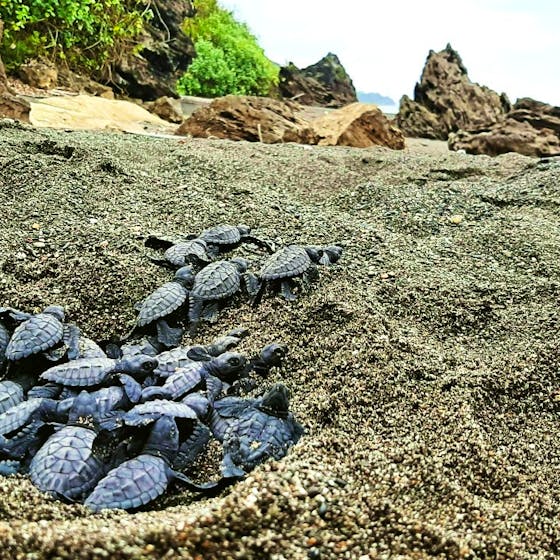
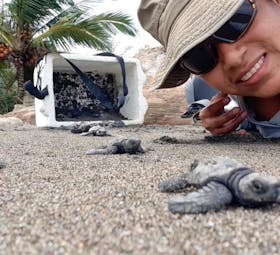
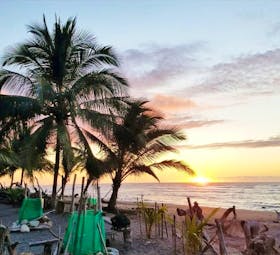
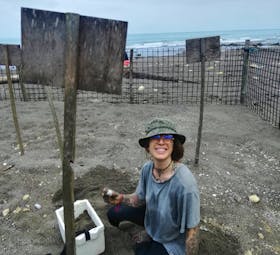
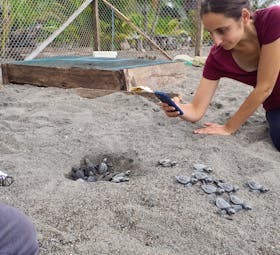
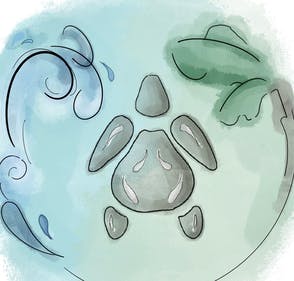
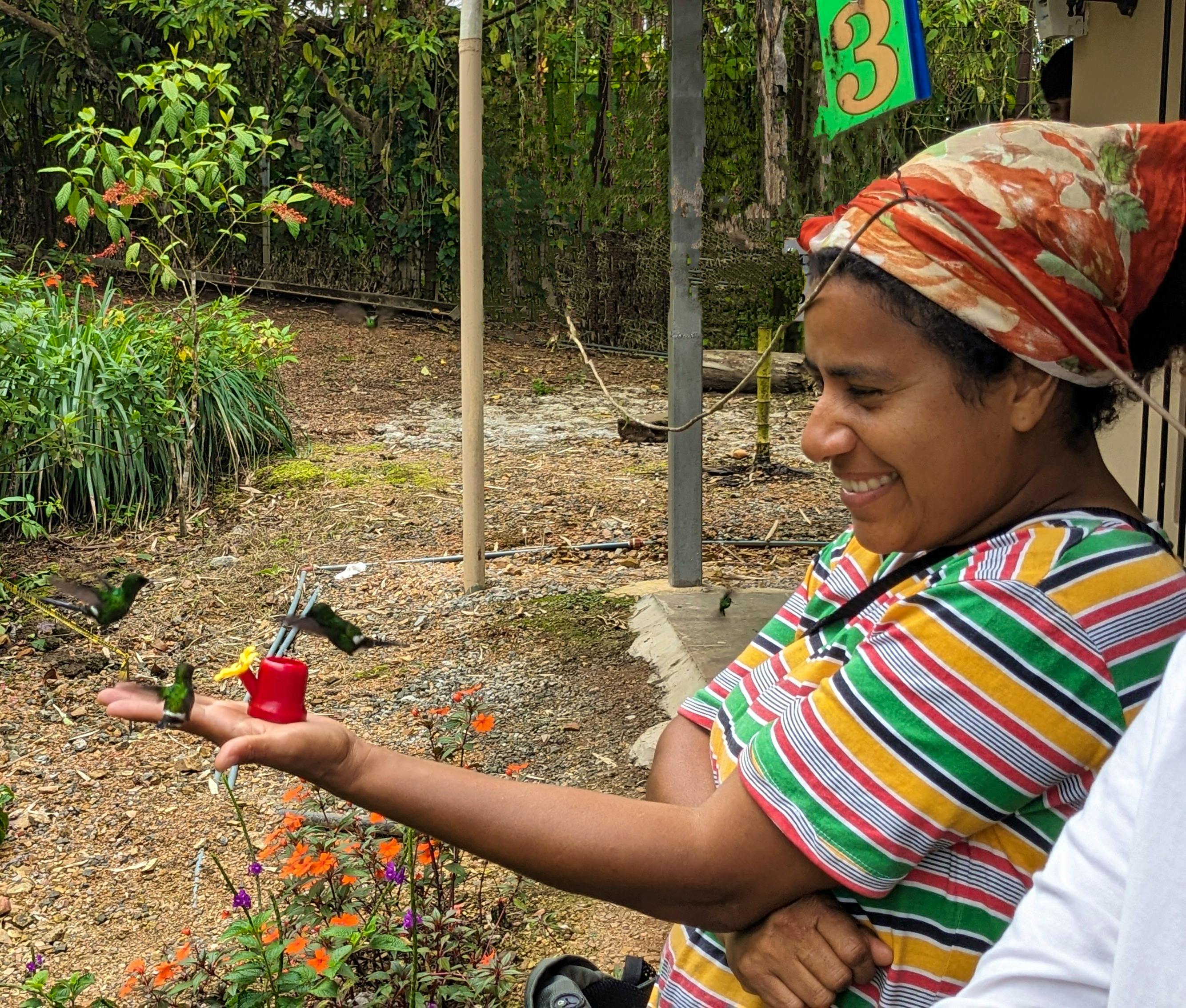
 4.8
4.8

